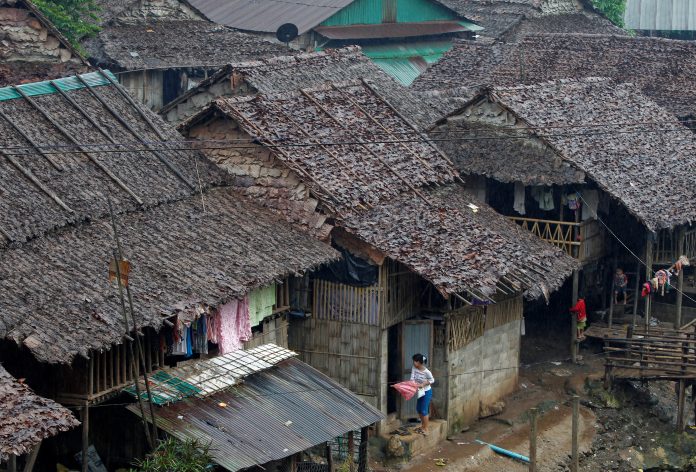The Border Consortium (TBC), a key humanitarian agency supporting Myanmar refugees living in nine camps along the Thailand border, issued a statement on June 27 warning that further reductions in food assistance will come next month following the withdrawal of a major donor.
“The key issue is that the humanitarian system is facing chronic underfunding across the entire sector,” Max Morch, the TBC manager for advocacy, communication and reports, told DVB by email.
A TBC letter addressed to refugee camp committees and residents stated that the changes will affect most households in the Thai refugee camps, home to at least 80,000.
“Despite our best efforts to secure alternative support, we have not yet been successful,” the statement added. Food card support for “Standard” households could be discontinued by July 31.
Food cards are understood to be a type of pre-paid voucher system provided to refugees, allowing them to purchase food from designated shops within the camps. The exact value of each card is not publicly available.
Only those classified as “Most Vulnerable (MV)” and “Vulnerable (V)” would continue to receive limited in-kind food assistance.
“TBC will prioritise support for households with the greatest needs, including those with elderly members, persons with disabilities, and others in particularly vulnerable situations,” Morch added.
The Karen Refugee Committee (KRC), established in 1984, is based in the refugee camps along the border and in the town of Mae Sot. It provides support to residents and works closely with the TBC.
“People have no choice but to flee [conflict in Myanmar]. Camp populations have been rising [since the 2021 military coup]. If aid is cut, this becomes an immense crisis,” Saw Pwel Say, the secretary of the KRC, told DVB. “[It is] one of the worst we’ve faced.”
Many residents of villages and towns located along the border have had to flee their homes to the refugee camps due to the Myanmar’s protracted armed conflict, which intensified in the late 1980s and led to the creation of the nine refugee camps in Thailand.
Since the 2021 military coup, many who had left the camps to return to Myanmar have since returned to Thailand.
“What can we do? We can’t return home. At least here, we feel safer even thought such food cuts,” a Karen refugee who has lived in a camp called Ohn Pyan for 15 years, told DVB on the condition on anominity.
In January, U.S. President Donald Trump issued an executive order suspending foreign humanitarian aid programs globally, including to refugee camps in Thailand and for Internally Displaced Persons (IDPs) inside Myanmar.
On Feb. 2, a 71-year-old refugee named Pe Kha Lau died days after being discharged from a clinic operated by the International Rescue Committee (IRC) at a camp called Umpiem Mai. The health facility was closed due to U.S. aid cuts.
TBC said it is now working with Thai authorities to explore legal work opportunities for Myanmar refugees, promoting self-reliance to resolve the situation for the 80,000-plus confined to the camps.
“TBC has long advocated for the right of refugees to work, as a pathway to a dignified and sustainable future beyond the camps. This is the immediate and long term solution to this issue,” Morch concluded.
TBC warned that a lack of donor funding would cause a strain on its programs on World Refugee Day. It added that without urgent funding tens of thousands of vulnerable people face critical food insecurity in the months ahead.



